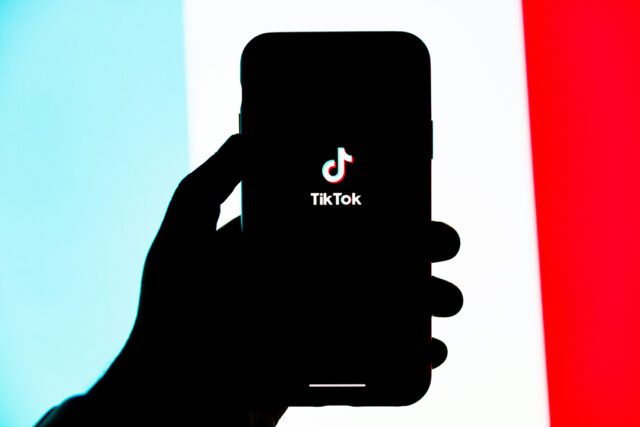BERLIN/MEXICO CITY/WASHINGTON — Germany is waging a charm offensive inside the Republican Party. Japan is lining up its own Trump whisperer. Mexican government officials are talking to Camp Trump. And Australia is busy making laws to help Trump-proof its US defense ties.
Everywhere, US allies are taking steps to defend or advance their interests in the event former President Donald Trump returns to power in November elections, an even chance based on recent opinion polls in swing states.
They want to avoid the cold slap that Trump’s “America First” policies dealt them last time around, which included trade wars, a shakeup of security alliances, an immigration crackdown and the withdrawal from a global climate accord.
Reuters spoke to diplomats and government officials in five continents about preparations for Trump 2.0. It uncovered Mexican deliberations over a new, Trump-savvy foreign minister, an Australian envoy’s role in rushing to protect a submarine deal, and a German official’s talks with Republican state governors.
Some foreign leaders have contacted Mr. Trump directly despite the risk of irking his election rival, Democratic President Joseph R. Biden, Jr. Saudi’s crown prince recently phoned Mr. Trump, a source with knowledge of the conversation said; while Hungary’s prime minister and Poland’s president met him in person in recent weeks.
British Foreign Minister David Cameron also held talks with Mr. Trump this month at his Florida resort. He told reporters in Washington afterwards that his meeting was a private dinner where they discussed Ukraine, the Israel-Gaza war, and the future of the North Atlantic Treaty Organization (NATO).
The White House referred Reuters to comments by spokesperson Karine Jean-Pierre in which she said meetings such as the one held by Cameron were not uncommon. She declined to answer questions about Mr. Trump’s meeting with Hungarian Prime Minister Viktor Orbán or the Saudi call, which was first reported by the New York Times.
The Saudi government’s media office and the Trump campaign did not respond to requests for comment about the call
The campaign said he discussed security issues with each of the European leaders, including a proposal by Polish President Andrzej Duda that NATO members spend at least 3% of gross domestic product on defense. Currently, they aim to spend 2%.
Jeremi Suri, a presidential historian at the University of Texas, said meetings between candidates and diplomats were normal, but said he thought Trump’s meeting with Mr. Orban and the call with Saudi Arabia’s Mohammed Bin Salman were unusual.
Mr. Trump adviser Brian Hughes said: “Meetings and calls from world leaders reflect the recognition of what we already know here at home. Mr. Biden is weak, and when President Trump is sworn in as the 47th President of the United States, the world will be more secure and America will be more prosperous.”
The campaign did not respond in detail to questions about the other findings in this story, but campaign spokesperson Karoline Leavitt said: “America’s allies are anxiously hoping that President Trump will be re-elected.”
‘BYPASS DIPLOMACY’
Much of the Trump outreach has been less direct than meetings with the candidate.
Germany has been building bridges with Mr. Trump’s Republican base at a state level, reminding party officials that it invests heavily in US industry.
Mindful that Mr. Trump threatened punitive tariffs on Germany’s car industry while president, and now wants to slap a minimum 10% tariff on all imports if returned to office, Germany is using a transatlantic coordinator to ready for Trump 2.0.
As coordinator, Michael Link is leading what Berlin calls “bypass diplomacy,” crisscrossing the union, targeting swing states where Germany is a heavy investor.
“It would be extremely important, if Donald Trump were re-elected, to prevent the punitive tariffs he is planning on goods from the EU,” he told Reuters.
He said he had met Republican governors of Oklahoma, Arkansas, Alabama and Indiana. At each stop, he explains why good trade ties underpin Germany’s US presence. The biggest exporter of US-made cars is BMW, and Germany says it employs 860,000 Americans directly and indirectly.
Mr. Link has also been meeting Democratic officials, but lobbying those who can influence Mr. Trump is his priority.
Reuters could not determine if Mr. Trump was aware of Berlin’s approach.
JAPAN’S TRUMP WHISPERER
To bolster its diplomatic engagement with the Trump camp, Japan is preparing to deploy Sunao Takao, a Harvard-educated interpreter who helped former Prime Minister Shinzo Abe bond with Mr. Trump over games of golf.
Another ex-prime minister of Japan, Taro Aso, met Mr. Trump in New York on Tuesday, according to a campaign official.
America’s closest ally in Asia worries Mr. Trump may revive trade protectionism and demand more money for the upkeep of US forces in Japan, government officials say.
Britain’s Labor party, now in opposition but strong favorite to win elections expected by year-end, may have a steeper hill to climb to reach a good relationship with a Trump administration.
Labor’s nominative foreign minister, David Lammy, once wrote in Time magazine that Mr. Trump was a “woman-hating, neo-Nazi sociopath.” Mr. Lammy is now working to build ties with Republicans, said a Labor official.
Mr. Lammy has met Republican figures seen as candidates for roles in a Trump cabinet, including Mike Pompeo, a former US Secretary of State under Mr. Trump, the Labor official said.
Mr. Lammy declined to be interviewed but has said many British politicians criticized Mr. Trump and he would represent British interests as foreign minister regardless of who occupies the White House.
Victoria Coates, a former deputy national security adviser under Mr. Trump, said a Labor victory could mean a rough patch for US-UK relations if Mr. Trump wins, citing “personal vitriol” on the part of Labor.
A representative for Mr. Pompeo declined to comment.
ANXIETY DOWN UNDER
Australia’s US ambassador, Kevin Rudd, recently drew Mr. Trump’s ire over past criticism of the former president.
In a broadcast interview last month, Mr. Trump said he had heard that Mr. Rudd, an ex-prime minister, was “a little bit nasty” and that: “If he’s at all hostile, he will not be there long.”
Australian Foreign Minister Penny Wong has defended Mr. Rudd, saying he would stay as ambassador if Mr. Trump won back power.
Behind the scenes, Mr. Rudd is trying to protect a key defense deal from being unwound by Mr. Trump, an Australia-based diplomatic source said.
The Biden administration has agreed to help Australia take its first step toward developing a fleet of nuclear-powered submarines by selling Canberra three to five Virginia-class attack submarines.
Mr. Rudd has pushed Canberra to act fast on enacting legislation that moves it closer to US arms-control standards and sets up a special nuclear-safety body, in the hope it would make the sale harder for Trump to unpick, the source said.
The embassy declined to comment. Canberra did not immediately respond to a request for comment.
Michael Shoebridge, of Strategic Analysis Australia, said Trump’s “America First” could still sink the deal.
“All the levers are there for Trump to say, ‘the US Navy doesn’t have enough, so Australia don’t get any’,” the defense expert said.
Reuters could not determine Mr. Trump’s view on the matter. He has not raised any concerns on the deal on the campaign trail.
SOUTH KOREA’S DISCREET APPROACH
A low-key way for US allies to influence Trump is via lobbyists, especially if they want to be discreet.
A former South Korean government official, now based in Washington, said the Biden administration was watching foreign governments closely and that Seoul preferred to understand Mr. Trump’s thinking via lobbying firms in a “stealthy manner.”
Washington’s lobbyist district is buzzing with South Koreans keen to understand Mr. Trump’s views on trade and investment, including what would happen to Biden’s Inflation Reduction Act (IRA), a South Korean government official said.
South Korea’s foreign ministry said it was working with its local missions to prepare for the election and its aftermath but that it had not hired lobbyists for specific candidates.
IRA supports the re-shoring of manufacturing and the energy transition. Mr. Trump also backs re-shoring but not Mr. Biden’s push to switch from fossil fuels to green power.
Some US allies are using lobbyists linked to Mr. Trump, including Ballard Partners, run by Brian Ballard, a Florida lobbyist who is sought out for his close links to Mr. Trump.
Ballard’s clients include Japan and the Democratic Republic of Congo, according to the firm and US disclosure filings. It declined to name others.
“Many members of our firm have been longtime allies of the former president,” said Justin Sayfie, a partner with Ballard.
Japan’s foreign ministry said it sought advice and support from a wide range of experts. It declined to comment on the relationship with Ballard. Congo did not immediately respond to a request for comment. — Reuters












